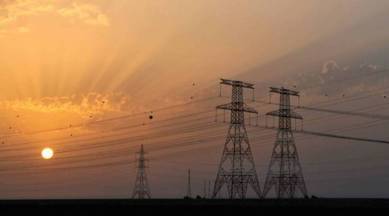Delhi Government Reduces Power Purchase Adjustment Charge, Lowering Electricity Bills for Consumers
By Lokmat English Desk | Updated: December 27, 2024 22:57 IST2024-12-27T22:56:18+5:302024-12-27T22:57:16+5:30
In a significant move to bring relief to residents, the Delhi government has announced a drastic reduction in the ...

Delhi Government Reduces Power Purchase Adjustment Charge, Lowering Electricity Bills for Consumers
In a significant move to bring relief to residents, the Delhi government has announced a drastic reduction in the surcharge levied on power bills in the national capital. The Power Purchase Adjustment Charge (PPAC) rates, which were previously set at 27.08% for BRPL, 31.6% for BYPL, and 29.33% for TPDDL, have now been reduced to 18.19%, 13.63%, and 20.52%, respectively, as per an official release. This reduction will lead to lower electricity bills for all consumers across Delhi.
Chief Minister Atishi, who also holds the Power portfolio, emphasized that this change was made possible by the Aam Aadmi Party's (AAP) honest, people-centric governance. She highlighted that the Delhi government has consistently prioritized protecting consumers from excessive tariff hikes by ensuring power distribution companies (DISCOMs) comply with regulations set by the Delhi Electricity Regulatory Commission (DERC).
The DERC, as the sole authority responsible for approving the PPAC levied by DISCOMs, operates under the Tariff Regulations 2017 framework. This framework outlines the process for setting, approving, and adjusting the PPAC, along with the recovery mechanisms for these costs.
"It is only through proper management of the power supply chain and pre-planning that the Delhi government has been able to achieve this," said Atishi. She also pointed out that neighbouring cities such as Noida and Gurgaon face high tariffs and frequent power cuts during the summer. "In Delhi, however, people enjoy 24-hour power supply and, in many cases, zero electricity bills due to our policies," she added.
The Power Purchase Adjustment Charge (PPAC) is a surcharge added to electricity bills to account for changes in the cost of purchasing power. It allows DISCOMs to recover additional costs arising from factors such as fuel price fluctuations, transmission charges, or other market and weather-related conditions that cannot be predicted during annual tariff planning. As a result, DISCOMs levy PPAC to adjust for unexpected surges in costs. In December 2023, the DERC-approved PPAC rates for Delhi DISCOMs were as follows: BRPL at 27.08%, BYPL at 31.6%, and TPDDL at 29.33%. However, the DERC recently reduced the PPAC rates to 18.19% for BRPL, 13.63% for BYPL, and 20.52% for TPDDL through orders issued on October 30, 2024, and December 20, 2024.
During the summer of 2024, Delhi experienced an unprecedented peak in electricity demand due to severe heat. To ensure a 24-hour uninterrupted power supply, DISCOMs purchased electricity at prevalent market rates, which led to a higher PPAC. Additionally, in October 2023, the central government mandated thermal power plants to continue blending imported coal with domestic coal to address supply shortages. This increased the proportion of expensive imported coal from 4% to 6%, raising electricity generation costs.
Also Read: Delhi Assembly Elections 2025: AAP Intensifies Attack on Congress, Raises Unity Concerns
However, with the arrival of winter, electricity demand and consumption typically decline, leading to lower power procurement from generating companies and reduced overall power purchase costs. By mid-October 2024, the proportion of imported coal was reduced back to 4%, and by October 15, the requirement for blending imported coal was entirely removed. These changes resulted in significantly lower generation costs, leading to reduced electricity bills for consumers.
Open in app